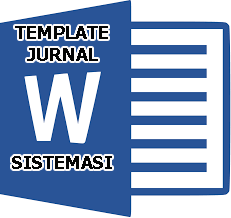Model of Utilization Knowledge Management System Application
Abstract
Full Text:
PDFReferences
M. A. Nugroho, “Teknologi Knowledge Management: Peran TI Terhadap Pengelolaan Knowledge,” Informasi, vol. 37, no. 1, pp. 82–94, 2011, doi: 10.21831/informasi.v1i1.4465.
N. S. Fitriasari, M. R. Apriansyah, and R. N. Antika, “Pembelajaran Kolaboratif Berbasis Online,” Inspir. J. Teknol. Inf. dan Komun., vol. 10, no. 1, 2020, doi: 10.35585/inspir.v10i1.2564.
N. S. Fitriasari et al., “IoT-based Knowledge Repository Design for Supporting Knowledge Integration within the Marine Information System Study Program,” J. Phys. Conf. Ser., 2021, doi: 10.1088/1742-6596/1811/1/012101.
P. Ratwiyanti, Y. Munsaidah, and R. Dewi, “Knowledge Management System Readiness di Universitas Amikom Purwokerto Berdasarkan Aspek People, Process, Technology,” Sistemasi, vol. 9, no. 1, p. 166, 2020, doi: 10.32520/stmsi.v9i1.631.
M. Al-Emran, V. Mezhuyev, A. Kamaludin, and ..., “Development of M-learning application based on knowledge management processes,” Proc. 2018 …, 2018, doi: 10.1145/3185089.3185120.
J. E. Munive-Hernandez and P. Taticchi, “Implementation of KM 2.0 Technologies as an E-Learning Tool to Promote Collaboration in Higher Education,” Ifkad - Kcws 2012 7Th Int. Forum Knowl. Asset Dyn. 5Th Knowl. Cities World Summit Knowledge, Innov. Sustain. Integr. Micro & Macro Perspect., no. December 2019, pp. 1202–1218, 2012.
S. Nurjanah, H. B. Santoso, and Z. A. Hasibuan, “Modeling of schools ICT utilization: An empirical study in Indonesia,” Proc. 3rd Int. Conf. Informatics Comput. ICIC 2018, pp. 1–5, 2018, doi: 10.1109/IAC.2018.8780487.
A. R. Hevner, S. T. March, J. Park, and S. Ram, “Design Science in Information Research 1,” Des. Sci. IS Res. MIS Q., vol. 28, no. 1, p. 75, 2004.
C. Asamoah and P. Ngulube, “Exploring Models for the Management of Indigenous Knowledge in Academic Libraries Of Ghana,” Inf. Dev., pp. 1–11, 2021, doi: 10.1177/02666669211052928.
T. Balogun, “Data Management of Digitized Indigenous Knowledge System in Repositories,” Inf. Dev., 2023, doi: 10.1177/02666669231186777.
T. F. Pereira, J. A. B. Montevechi, F. Leal, R. de C. Miranda, and A. P. G. Scheidegger, “Application of a Management and Storage System for Knowledge Generated From Simulation Projects As a Teaching and Assessment Tool,” Simulation, vol. 97, no. 12, pp. 795–808, 2021, doi: 10.1177/00375497211020354.
A. Megnounif and A. Kherbouche, “Knowledge Management Promising Contribution To University Performance: Empirical Study Based on Teachers’ Opinions,” J. Inf. Knowl. Manag., vol. 19, no. 3, 2020, doi: 10.1142/S0219649220500227.
P. N. Duong, D. T. Kien, and B. T. Khoa, “Do Knowledge Management Systems Motivate and Satisfy the Academic Staff in Higher Education Institutions?,” J. Appl. Learn. Teach., vol. 5, no. 2, 2022, doi: 10.37074/jalt.2022.5.2.16.
S. Nupap, “Knowledge Management System by applying Knowledge Creating Company: Transforming Tacit to Explicit Knowledge,” 7th Int. Conf. Digit. Arts, Media Technol. DAMT 2022 5th ECTI North. Sect. Conf. Electr. Electron. Comput. Telecommun. Eng. NCON 2022, pp. 439–444, 2022, doi: 10.1109/ECTIDAMTNCON53731.2022.9720388.
A. S. Rashid, K. Tout, and A. Yakan, “The Critical Human Behavior Factors and Their Impact on Knowledge Management System–Cycles,” Bus. Process Manag. J., 2021, doi: 10.1108/BPMJ-11-2020-0508.
M. Abdellatif and K. Asma, "A new model for the impact of knowledge management on university performance: Empirical study based on student opinions, vol. 18, no. 3. 2019.
A. Satiman, “A development of knowledge management system on mobile devices for higher education, Thailand,” ACM Int. Conf. Proceeding Ser., pp. 87–90, 2019, doi: 10.1145/3328886.3328897.
Z. A. Latipov, N. Galchenko, N. K. Rozova, A. N. Ikonnikova, and S. V. Filippova, “Digital educational environment as a tool of system changes in the teacher’s professional activity,” Humanit. Soc. Sci. Rev., vol. 7, no. 6, pp. 549–553, 2019, doi: 10.18510/hssr.2019.7685.
A. C. Santos, A. Iglesias Rodríguez, and A. M. Pinto-Llorente, “Identification of characteristics and functionalities for the design of an academic analytics model for Higher Education,” ACM Int. Conf. Proceeding Ser., pp. 997–1003, 2020, doi: 10.1145/3434780.3436578.
Y. Li et al., “IoT-CANE: a Unified Knowledge Management System for Data-Centric Internet of Things Application Systems,” J. Parallel Distrib. Comput., vol. 131, pp. 161–172, 2019, doi: 10.1016/j.jpdc.2019.04.016.
N. A. Nova, R. A. González, L. C. Beltrán, and C. E. Nieto, “a Knowledge Management System for Sharing Knowledge About Cultural Heritage Projects,” J. Cult. Herit., vol. 63, pp. 61–70, 2023, doi: 10.1016/j.culher.2023.07.013.
K. Iyengar, J. Sweeney, and R. Montealegre, “Pathways to Individual Performance: Examining the Interplay Between Knowledge Bases and Repository KMS Use,” Inf. Manag., vol. 58, no. 7, p. 103498, 2021, doi: https://doi.org/10.1016/j.im.2021.103498.
B. T. Sayed, K. M. Al Mushikhi, and S. Chaudhry, “A Pragmatic Prototype to Enhance the Quality Pre-University Level Skills Towards Further Development of Human and Knowledge Attributes in the Region,” Procedia Comput. Sci., vol. 154, pp. 824–831, 2018, doi: 10.1016/j.procs.2019.06.073.
K. S. Pribadi et al., “Learning from past earthquake disasters: The need for knowledge management system to enhance infrastructure resilience in Indonesia,” Int. J. Disaster Risk Reduct., vol. 64, p. 102424, 2021, doi: https://doi.org/10.1016/j.ijdrr.2021.102424.
DOI: https://doi.org/10.32520/stmsi.v13i5.3904
Article Metrics
Abstract view : 491 timesPDF - 152 times
Refbacks
- There are currently no refbacks.

This work is licensed under a Creative Commons Attribution-ShareAlike 4.0 International License.









